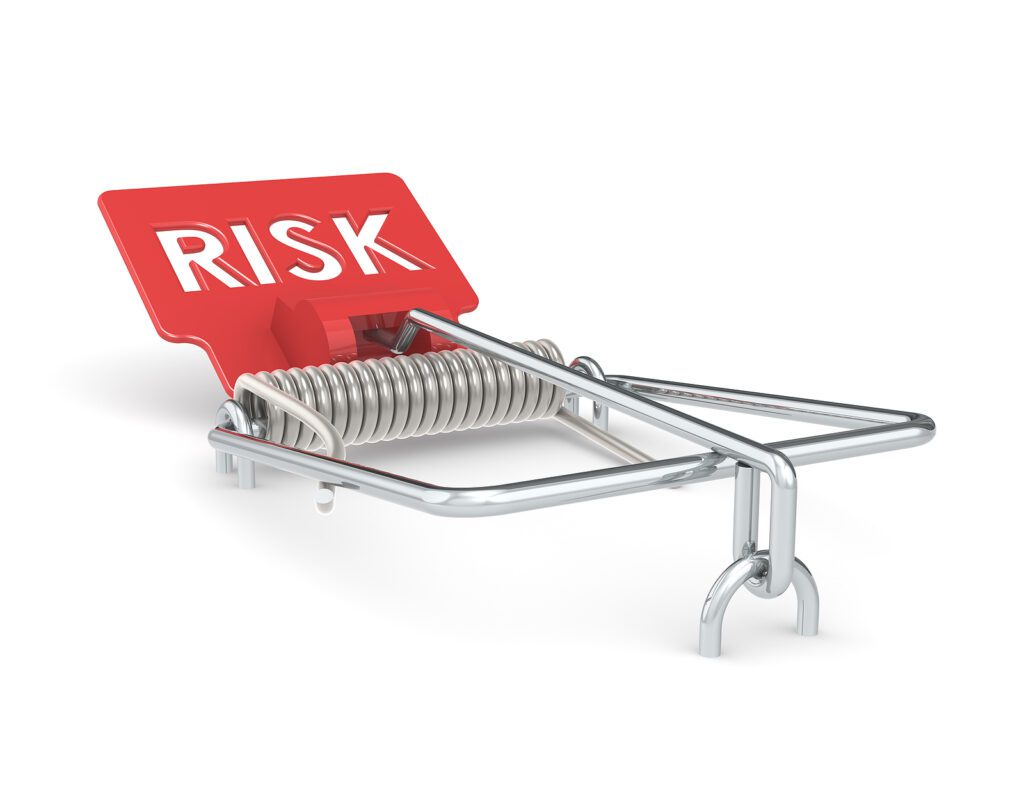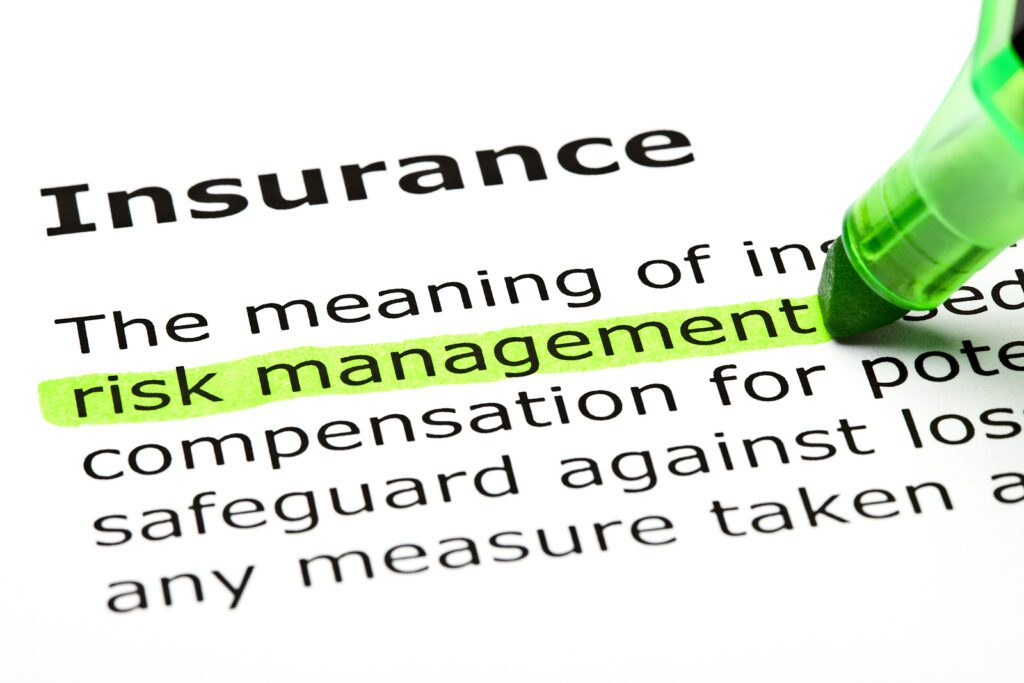Shielding Your Small Business: 5 Essential Risk Protection Strategies – Part 1

It’s a question every business owner should be continually asking themselves. “Am I doing everything I can to reduce risk exposure in my business?”. It doesn’t matter what kind of business you’re in, the bad guys are finding increasingly creative ways to rip you off.
Because of that, business owners should be putting risk management at the top of their ongoing ‘To Do’ lists.
It could be exposure to data breaches, money scams, or trying to take you to court over bogus service claims. Small businesses tend to be targeted because scammers know they don’t typically have a large budget for expensive security consultants or other advanced protection services.
Doing nothing, though, is not an option. You’ve worked hard to build a solid reputation. Do you have these 5 essential risk management strategies in place?

A Service Agreement or Contract
It’s amazing how many company owners aren’t using an attorney-vetted service contract in their daily customer interactions. Whether you’re a senior downsizing specialist, a professional home organizer, a Realtor, or another industry, having your services in writing is critical to your protection.
In my Business Start-Up Essentials course, I cover specifics on what to include in a service agreement for a senior downsizing business (or related senior-service business) and how it protects your business and client. I also include a downloadable attorney-vetted service agreement template for those who don’t have time to hire an expensive attorney and create one from scratch.
Regardless of your industry, service agreements should always include detailed descriptions of the type of services you provide your clients and when you are providing them. In addition, you should include payment terms, disclaimers for services you do not provide, and arbitration guidelines based on your state’s regulations in case you are ever taken to court.
If you’ve been in business for a while, you’ve probably learned that what a client hears doesn’t always match what you thought was represented. Having a service agreement signed before the start of any service is critical and can help if a client tries to change service expectations mid-job.

Professional Insurance
Depending on the legal entity you choose when setting up your business, your personal or business assets could be at risk if a client or a vendor successfully sues you. The second essential is to consider one, or both, of two business liability insurance policy options: a General Business Liability policy and a Professional Liability policy. They are often offered in a bundled package.
A general business liability (GBL) insurance policy pays for legal expenses you may incur from a lawsuit. For instance, if a non-employee injury occurs on your business property, or you damage someone else’s property during service. It also would cover lawsuits for slander or copyright infringement and pay attorney’s fees, court costs, and required settlements.
Professional Liability Insurance may sound like the same thing as a General Business Liability policy, but it’s not. It targets ‘errors and omissions’ situations involving alleged professional misconduct and negligence while conducting professional services.
Many business owners hesitate to invest in insurance because, depending on the service industry you’re in, it can be pricey. Speak to an insurance specialist in your area for current options available for your specific type of service.

Cyber Risks & Hacking
Cyber attacks are a daily threat today to businesses and consumers and it’s only getting worse.
If you use a computer or tablet in your business (and most of us do), it’s critical to have strong preventative software protecting them. Industry experts recommend both Internet security and malware programs to lower risk exposure.
There are several good security software solutions out there. Some tend to slow down your computer performance over others like McAfee. I have successfully used NOD32 (by Eset) for Anti-Viral protection for many years and it’s done its job beautifully.
I also use Malwarebytes cyber-security and malware protection as a secondary-level backup. My IT professional consultant explained that Malwarebytes goes deeper in its threat control than many broader anti-virus programs because malware is their primary product focus.
Don’t forget, if you have employees who access company computers, make sure to also provide training for them on cyber-security best practices, especially when it comes to Internet access and watching for phishing emails.
In the upcoming Part 2 of this blog article, I’ll go into more detail on what to look for in cyber-security best practices and additional steps you can take to protect yourself from hackers.
So, are you feeling overwhelmed about how to evaluate potential hacking exposure? I suggest you contact a computer professional specializing in cyber-security. Have them review your business for exposure and give recommendations.

Evaluate Your Services for Dangerous Work Conditions
You may have higher-risk services, depending on your industry, with higher risk exposure. For example, senior downsizing specialists offering packing or mover services would have a higher risk exposure for damage liability. Moving services require higher insurance premiums because of their physical nature.
Sometimes the risk is less obvious, like working with clients who are suffering from dementia. It’s common for this type of client, who frequently loses track of personal items, to accuse a mover, downsizing specialist team member, or home organizer of theft only to find the item later.
Evaluated each service for its risk exposure. Then look for solutions to mitigate and prevent any unnecessary danger to you, your team, and the client.
After reviewing your services, it’s time to decide whether the risk is too great to make its financial benefits worthwhile.

Vetting Staff
Hiring the right staff members is an important aspect of your overall risk management strategy. It isn’t just about making sure their skill set and personality factors mesh with your business values and service operations.
It’s also about their work ethic, values, and willingness to adhere to your safety standards while on the job.
Many business owners have hired individuals they thought could be trusted. Unfortunately, they ended up with some staff members who were inconsistent in showing up for work, refused to follow safety guidelines, or acted unethically.
It’s tough to always know a person’s character, despite your best efforts to vet their history and work performance. This is where it’s critical to thoroughly vet a person’s references, and require background checks and drug testing, especially in businesses that provide services in a client’s home.
One way to dig deeper during the interview process is to ask open-ended, in-depth ‘situational example’ questions. How would they handle a difficult client situation? What would they do if they saw another staff member acting in an unsafe manner on the job?
Last Thoughts
There are many, many ways that you can decrease your potential business risk. The best risk management strategy should always include consistent review and focus on business practices while implementing preventative security software tools, and providing ongoing staff training.
Difficult as it is, it also requires an awareness of the world around us and understanding that new security challenges are always just around the corner. But by implementing these 5 basic strategies into your daily business planning, you can go a long way in protecting what you’ve worked so hard to create and grow.

Deborah
P.S. Interested in starting your own senior downsizing business? I can help! For more information on my online, go-at-your-own-pace business training program, click here.
